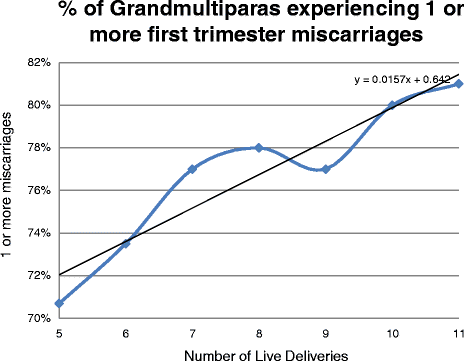
Miscarriage Rates in Early Pregnancy: Understanding the Statistics
Introduction
Miscarriage, also known as spontaneous abortion, is the loss of a pregnancy before 20 weeks of gestation. It is a common occurrence, affecting approximately 10-20% of all pregnancies. The majority of miscarriages happen in the first trimester, with the highest risk during the first 12 weeks. Understanding the miscarriage rates in early pregnancy can help individuals and healthcare providers make informed decisions about pregnancy care and management.
Risk Factors for Miscarriage
The risk of miscarriage is influenced by various factors, including:
- Maternal age: The risk of miscarriage increases with maternal age, particularly after the age of 35.
- Previous miscarriages: Women who have had a previous miscarriage have a higher risk of experiencing another one.
- Chromosomal abnormalities: Genetic abnormalities in the developing embryo or fetus can lead to miscarriage.
- Medical conditions: Certain medical conditions, such as thyroid disorders, diabetes, and autoimmune diseases, can increase the risk of miscarriage.
- Lifestyle factors: Smoking, excessive alcohol consumption, and certain medications can contribute to miscarriage.
Early Pregnancy Miscarriage Rates
The miscarriage rate in early pregnancy varies depending on the gestational age:
- Weeks 0-6: The risk of miscarriage is approximately 50%.
- Weeks 7-12: The risk of miscarriage is about 15-20%.
- Weeks 13-20: The risk of miscarriage is less than 5%.
Causes of Early Pregnancy Miscarriage
The exact cause of miscarriage is often unknown. However, common factors include:
- Chromosomal abnormalities: These are genetic errors that occur during cell division and can lead to embryo or fetal developmental problems.
- Hormonal imbalances: Insufficient levels of progesterone, a hormone that supports pregnancy, can contribute to miscarriage.
- Uterine abnormalities: Structural problems with the uterus, such as fibroids or polyps, can interfere with implantation and pregnancy progression.
- Immune system issues: The mother’s immune system may attack the developing embryo or fetus, leading to miscarriage.
- Infections: Certain infections, such as rubella or cytomegalovirus, can cause miscarriage.
Symptoms of Miscarriage
The symptoms of miscarriage can vary, but common signs include:
- Vaginal bleeding: This can range from light spotting to heavy bleeding.
- Cramping: Painful contractions in the lower abdomen.
- Loss of pregnancy symptoms: Nausea, breast tenderness, and other pregnancy symptoms may subside.
- Passage of tissue: In some cases, the embryo or fetus may be expelled from the uterus.
Diagnosis and Management of Miscarriage
Miscarriage is typically diagnosed based on the patient’s symptoms and a physical examination. A transvaginal ultrasound may be performed to confirm the diagnosis and assess the gestational age.
Management of miscarriage depends on the circumstances:
- Early miscarriage (less than 12 weeks): In most cases, early miscarriages are managed expectantly, meaning the body will naturally expel the pregnancy tissue.
- Missed miscarriage: This occurs when the embryo or fetus has stopped developing but has not been expelled. Treatment options include medication or a surgical procedure to remove the pregnancy tissue.
- Incomplete miscarriage: When some pregnancy tissue remains in the uterus after a miscarriage, it may require surgical removal.
- Recurrent miscarriage: Women who have experienced multiple miscarriages may undergo further testing to identify underlying causes and receive specialized care.
Emotional Impact of Miscarriage
Miscarriage can be a devastating experience for individuals and families. It can lead to feelings of grief, loss, and guilt. It is important to seek support from loved ones, healthcare providers, or support groups to cope with the emotional impact of miscarriage.
Prevention of Miscarriage
While not all miscarriages can be prevented, there are certain measures that can help reduce the risk:
- Maintain a healthy weight: Being overweight or underweight can increase the risk of miscarriage.
- Quit smoking: Smoking damages the blood vessels that supply the uterus and fetus.
- Limit alcohol consumption: Excessive alcohol intake can harm the developing embryo or fetus.
- Manage medical conditions: Controlling underlying medical conditions, such as diabetes or thyroid disorders, can improve pregnancy outcomes.
- Take prenatal vitamins: Folic acid and other prenatal vitamins are essential for fetal development.
- Avoid certain medications: Some medications can increase the risk of miscarriage. Consult with a healthcare provider before taking any medications during pregnancy.
Conclusion
Miscarriage is a common occurrence in early pregnancy. Understanding the risk factors, causes, and management options can help individuals and healthcare providers make informed decisions about pregnancy care. While not all miscarriages can be prevented, maintaining a healthy lifestyle and seeking medical attention for any concerns can help reduce the risk and provide support during this difficult time.